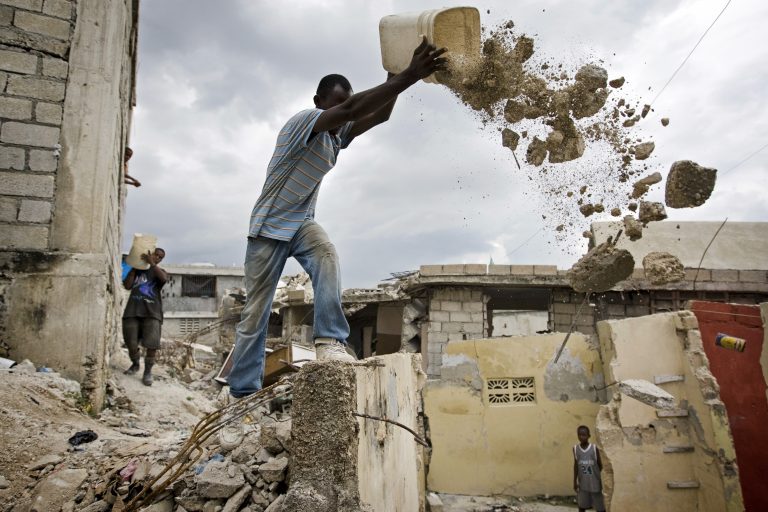The Oxfam Scandal: Humanitarians and Sexual Exploitation
By Professor Bertrand Taithe (HCRI Executive Director) and Dr Róisín Read (Lecturer in Peace and Conflict Studies)
The guardians of public morality, the British Press, have uncovered events that date from as far back as 2011. They could have found public revelations earlier had they wanted to. The UN had released reports on sexual exploitation of refugees as early as 2002 and many earlier examples could have been found without breaking a sweat. Of course, these may not have served what appears to be (judging from the editorial comment of the Sunday Times) the actual intent of the current campaign. With the usual mix of hypocritical prurience which characterises the British media, a scandal is born. On the one hand, there is no organisation that can claim itself free from sexual improprieties or even criminal offence, and the 87 incidents reported by Oxfam, the 31 reported by Save the Children and the two reported by Christian Aid have to be put in relation to the vast work forces for these organisations. On the other, there is and has always been a problem which this current scandal fails to reveal. It is time to talk about sex.
The issue of sexual exploitation within NGOs and by NGO workers towards their ‘beneficiaries’ is one that remains largely undocumented. A recent report by Tuft University provided some limited evidence of the scale of the issue within NGOs. The LSE’s centre for Women Peace and Security has also devoted time to debating the issues. Setting aside the gender politics of often male dominated organisations, the sexual exploitation of vulnerable people has to be set in a wider context – one in which the UN has played an unedifying role. A culture of prostitution and licentiousness accompanies almost any large deployment of UN forces. This is well documented as is the culture of constant cover up and impunity – UN staff are literally above the law. Those who report crimes such as the abuses that took place in Central African Republic are often punished.

Residents work with humanitarian organisations to remove rubble after the Haiti Earthquake in 2010. UN Photo Archives, Credit: Marco Dormino
This culture infuses some humanitarian contexts. The weakness of the state in Haiti was undoubtedly favourable to the sudden growth of mass prostitution around the many compounds of humanitarian actors. We remember well a conversation on the scale of sexual exploitation with a Haitian doctor who expressed his disgust at how Haitian women were treated by foreigners. There was a sense that nothing could be done to stop this.
That some humanitarians should not be sensitive to the power imbalance between rich interlopers and impoverished ‘beneficiaries’ is profoundly unsettling. More unsettling even is the realisation that, in some circumstances, compassion might have morphed so brutally into contempt and cynicism. Yet all of this is long standing. The idea that sexual predators might prowl the borders of policed society will be a surprise to no one. In the past the isolation of teams might have provided some degree of explanation as to why a rogue group might have been allowed to fester. Today one has to consider why individuals within teams allow behaviours to go unchallenged.
Scandals tend to be short-lived and obscure more than they reveal. Focusing on bad apples is the wrong way to look at it, as it ignores systemic issues. The idea that humanitarians should be paragons of virtues is one straw man whom journalists love to build in order to set it on fire. They do not make such claims themselves. They are in the business of being professionals and that entails codes of behaviour. There is an issue, yet, we are more than a little dubious about the intentions of journalists targeting an organisation that has often been critical of the government’s uses of aid. The timing and tone is odd, using the momentum of the #MeToo movement in order to attack foreign aid. As to the ‘investigative journalism’, it would not have taken much work for anyone to uncover what has clearly been an open secret. In this hypercompetitive humanitarian marketplace, transparency is a courageous stand and it may not pay off. Oxfam ironically leads the way in reporting incidents and seeks to become a model of good practice. Whether that makes it most vulnerable to scandals is a moot point. NGOs have developed many tools of accountability over the past thirty years, and to an extent this current series of revelations reflects that fact – but there is some way to go yet. They must move on from a culture of compliance to good behaviour codes to a more profound change of system, and more importantly, culture. Tolerating exploitation must end. It is not a matter of prurience or puritanism, but one of political responsibility.
Professor Bertrand Taithe
bertrand.taithe@manchester.ac.uk
Dr Róisín Read
roisin.read@manchester.ac.uk


0 Comments